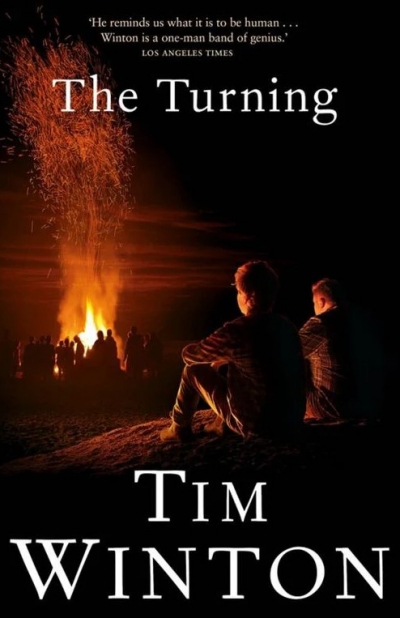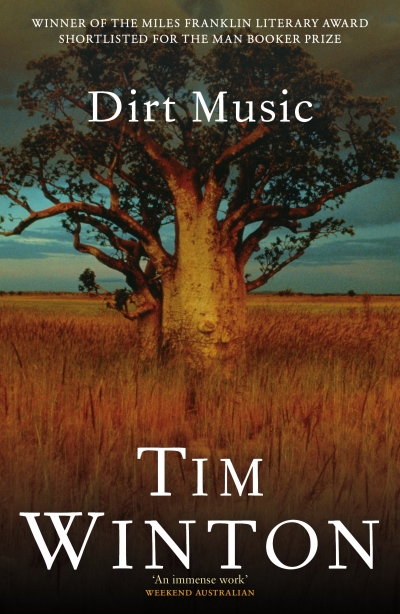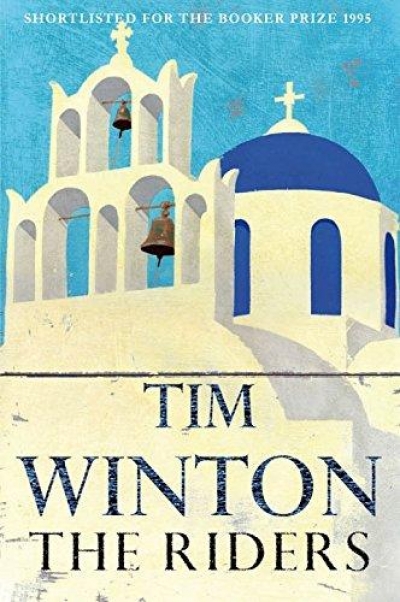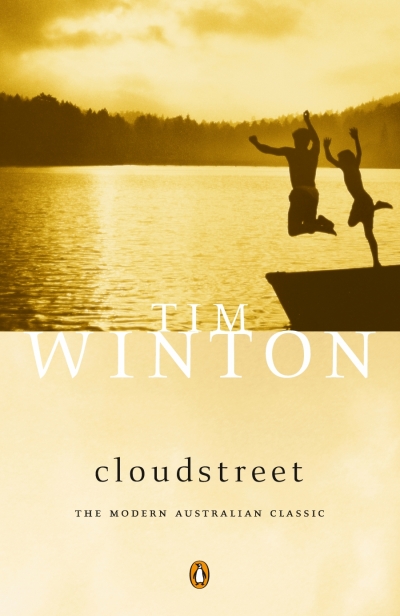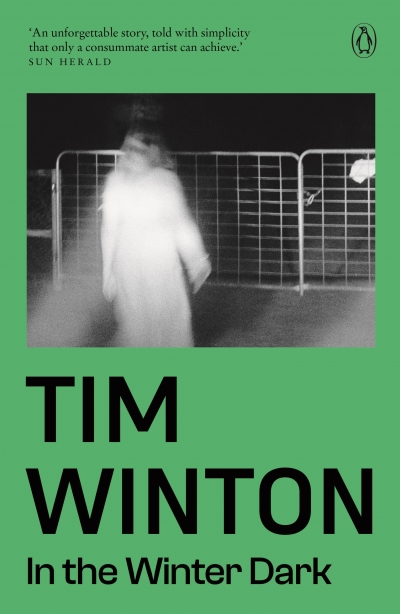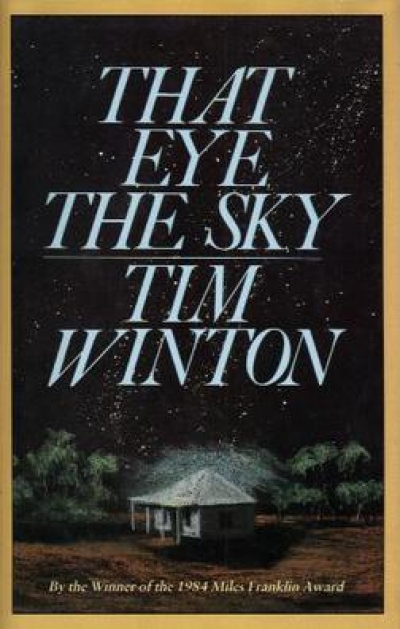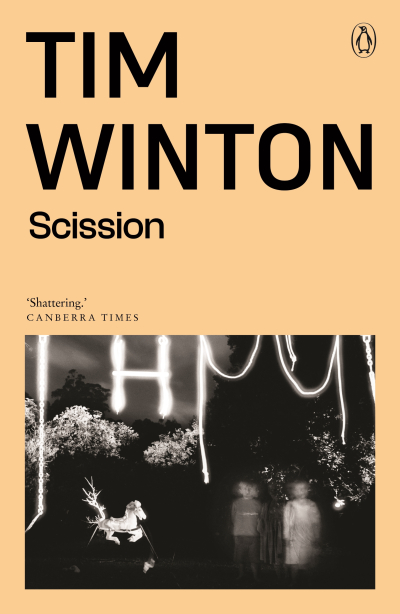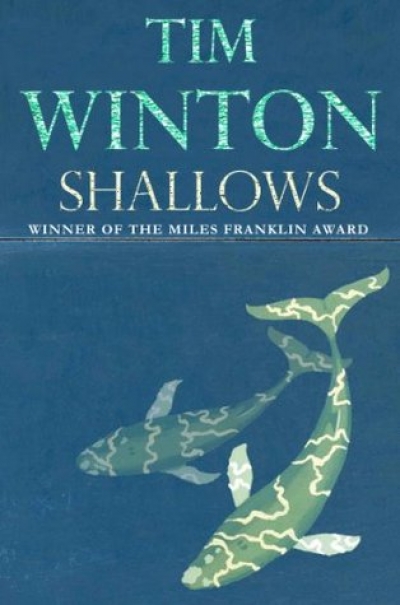Tim Winton
Any novelist prepared to name one of his characters ‘Fish Lamb’ and to have that character come back from the dead is obviously interested in Christianity on some level. It is also true that several of the big themes that run through Tim Winton ‘s fiction – guilt atonement, forgiveness – have a religious flavour. Nevertheless, Winton’s symbolism tends to have an open-ended quality. When his characters experience moments of spiritual awareness, moments that Winton has said are meant to be taken literally, these experiences are often depicted as a nonspecific form of mysticism or pantheism.
... (read more)Picador has done rather well in this year’s Miles Franklin Literary Award (worth $28,000), with three of the five short-listed novels: Richard Flanagan’s Gould’s Book of Fish, Joan London’s Gilgamesh and Tim Winton’s Dirt Music. Completing the quintet are Steven Carroll’s Art of the Engine Driver (Flamingo) and John Scott’s The Architect (Viking). The winner will be announced in Sydney on June 13.
Perpetual Trustees has been kept busy with short lists, including the one for the 2002 Nita B. Kibble Literary Award for Women Writers. This one, to be announced in Sydney on May 7, is worth $20,000. Three works in different genres have been short-listed: Marion Halligan’s novel The Fog Garden, Jacqueline Kent’s biography of Beatrice Davis, A Certain Style, and Hilary McPhee’s memoir, Other People’s Words.
... (read more)Talk about unlikely associations. My first response to the opening chapter of Tim Winton’s latest novel was how its sense of a life at a standstill, awaiting some new impulse, reminded me of Jane Austen’s Emma. Winton’s protagonist, Georgie Jutland, with a string of unsatisfactory relationships behind her ...
... (read more)Okay I’ve just finished reading Tim Winton’s The Riders. I’ve scribbled notes on pages all the way through, but I don’t want to go back and consult them. Who wants to return to hell?
... (read more)What do you do when you wake up in the morning and feel the shifty shadow of God lurking? You stay in bed, and hope that it’ll pass you by, that’s what. Sam Pickles doesn’t. He goes to work and loses his fingers in a winch: when he takes his glove off, they ‘fell to the deck and danced like half a pound of ...
... (read more)Hero, Allan Baillie’s sixth novel for young readers, shows this seasoned storyteller at his best. Succinct yet incisive, it is a highly disciplined display of how tight technique can turn a single incident into an exciting story. Right from the first line, ‘A single drop of water exploded on Pamela Browning’s open exercise book’, we know we are on the precipice of an event towards which every mumble on the earth and rumble in the sky lead.
... (read more)Place and the specifics of place are supremely significant in Tim Winton’s writing. It has established the South-west corner of Western Australia as its region, and the elements of that area, sea, sky, and forest, recur in his stories, images of an ultimate if unknowable meaning in the world. The people of Winton’s fiction live outside cities, immersed in their natural environment, from which the best of them learn as they struggle to make sense of their lives. Physical and metaphysical frontiers give Winton’s work its special flavour. Placed as they are, closer to nature than culture, his characters and the events of their stories develop beyond the boundaries of what we ordinarily know of ourselves and how we understand the world around us.
... (read more)This book is about a twelve-year-old boy called Ort Flack, into whose life, at a moment of drastic need, bursts none other than God, in the form of a silvery white cloud. The cloud has been there all along, hanging over the house, a personal vision of Ort’s, as mysterious and troubling and comforting to ...
... (read more)Tim Winton writes on the dedication page of Scission, “this one is for Gonzo”, and his youth and astonishing rate of publication suggest that he may produce one for each of his friends and relatives. After bursting on the Australian literary world with An Open Swimmer Winton has published another novel, Shallows and this new collection of short stories.
... (read more)Shallows by Tim Winton & Goodbye Goldilocks by Judith Arthy
Those who read the gloomy criticisms of modern education by some educationalists might be pardoned for wondering whether any but the most privileged children nowadays can hope to gain mastery of their language or development of their mind and talent. Meanwhile, the talented young blithely make nonsense of crabbed and intolerant age. Paul Zanetti, aged twenty-three, wins the Walkely Award for a political cartoon. Paul Radley, while still in his teens, and Tim Winton, barely older, won Australian Vogel Awards and continue writing with force and imagination.
Winton is now twenty-four. Shallows is his second good novel. It is set in a fictional West Australian whaling town called Angelus. Although I have never been to Albany (where Winton had part of his education), I suspect I might find it recognisable after reading Winton’s devoted and detailed account of Angelus. The time of the action is now, or a year or so ago, but the story ranges through much history. Change is inevitable for whaling ports and industries but whether it should come abruptly or gradually is still debatable.
... (read more)

